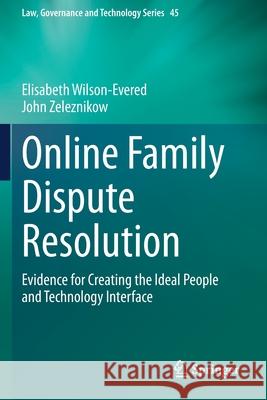Online Family Dispute Resolution: Evidence for Creating the Ideal People and Technology Interface » książka
topmenu
Online Family Dispute Resolution: Evidence for Creating the Ideal People and Technology Interface
ISBN-13: 9783030646479 / Angielski / Miękka / 2022 / 164 str.
Online Family Dispute Resolution: Evidence for Creating the Ideal People and Technology Interface
ISBN-13: 9783030646479 / Angielski / Miękka / 2022 / 164 str.
cena 523,30
(netto: 498,38 VAT: 5%)
Najniższa cena z 30 dni: 501,19
(netto: 498,38 VAT: 5%)
Najniższa cena z 30 dni: 501,19
Termin realizacji zamówienia:
ok. 22 dni roboczych.
ok. 22 dni roboczych.
Darmowa dostawa!
Kategorie:
Kategorie BISAC:
Wydawca:
Springer
Język:
Angielski
ISBN-13:
9783030646479
Rok wydania:
2022
Ilość stron:
164
Waga:
0.24 kg
Wymiary:
23.39 x 15.6 x 0.89
Oprawa:
Miękka
Wolumenów:
01
Dodatkowe informacje:
Wydanie ilustrowane











